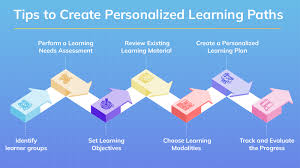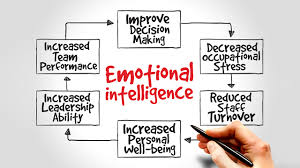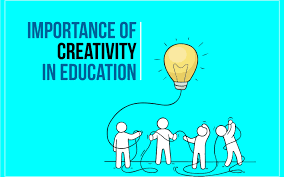The Science of Learning: How Our Brain Retains Information
Understanding how our brain retains information is essential for improving learning processes, especially for students. The science behind learning reveals fascinating insights into how the brain works when we try to remember and recall information. By understanding these mechanisms, we can optimize our study techniques and improve memory retention. This article explores the science of learning and how our brain retains information.
1. How Memory Works: Encoding, Storage, and Retrieval
The process of retaining information in the brain involves three critical stages: encoding, storage, and retrieval.
- Encoding: This is the first stage, where sensory information (what we see, hear, or feel) is transformed into a format that the brain can understand and store. During encoding, the brain processes new information and links it with what is already stored in memory. The stronger the encoding, the better the chances of retaining the information.
- Storage: After encoding, the brain stores the information in various memory systems. Short-term memory holds information temporarily, while long-term memory stores information for longer periods, from hours to a lifetime. The brain consolidates and strengthens memories during sleep, especially when it comes to information learned throughout the day.
- Retrieval: This is the process of recalling the stored information when needed. Retrieval can be more challenging if the information hasn’t been properly encoded or stored. The brain uses various cues to trigger recall, and repetition can enhance retrieval success.
2. The Role of Neurons and Synapses
Neurons are the building blocks of the brain and are responsible for transmitting information. When we learn something new, the brain creates neural connections, also known as synapses, between neurons. These connections allow information to be transferred from one neuron to another.
- Neuroplasticity: The brain’s ability to form and reorganize these synaptic connections is called neuroplasticity. This process is vital for learning. When we repeatedly engage with information, the connections between neurons become stronger and more efficient, leading to better retention.
- Long-Term Potentiation (LTP): LTP is a process that occurs in the synapses when they are repeatedly activated. It leads to a stronger and more enduring signal transmission between neurons, making it easier to recall information. This biological mechanism explains why repetition and practice are essential for solidifying memory.
3. The Importance of Attention and Focus
Attention plays a critical role in learning. The brain processes information more effectively when we are focused and engaged. Distractions can reduce the brain’s ability to encode and store information.
- The Role of the Prefrontal Cortex: The prefrontal cortex, which is responsible for higher cognitive functions, controls our attention span and helps us focus on specific tasks. The more attention we pay to a particular subject, the more likely we are to encode it into memory.
- The Cocktail Party Effect: This phenomenon shows how the brain can focus on a single conversation in a noisy room, filtering out irrelevant information. This selective attention helps prioritize important information and enhances memory retention.
4. The Impact of Sleep on Learning and Memory
Sleep is a vital component of memory consolidation. During sleep, the brain replays and strengthens the information learned throughout the day, moving it from short-term to long-term memory. Studies have shown that a good night’s sleep enhances the brain’s ability to retain information and recall it more accurately.
- REM Sleep and Memory Consolidation: Rapid Eye Movement (REM) sleep, in particular, plays a crucial role in consolidating declarative memories (facts and events) and procedural memories (skills and tasks). Lack of sleep can impair memory retention and recall, which is why adequate rest is essential for academic performance.
5. The Power of Repetition and Spaced Repetition
Repetition is a powerful tool for reinforcing learning. The more we repeat an activity or review information, the stronger the neural connections become, leading to better retention. Spaced repetition, a technique where information is reviewed at increasing intervals, takes advantage of the brain’s tendency to forget and then reinforce memories.
- The Forgetting Curve: This concept, proposed by Hermann Ebbinghaus, describes how we forget information over time if we don’t actively review it. Spaced repetition helps combat the forgetting curve by reviewing the material at strategic intervals, thus improving long-term retention.
6. The Role of Emotions in Memory Formation
Emotions play a significant role in memory retention. The brain is more likely to remember information that is associated with strong emotional experiences. This is because the amygdala, the part of the brain responsible for processing emotions, works in conjunction with the hippocampus, which is involved in memory formation.
- Emotional Memories: Events that evoke strong emotions, such as fear, happiness, or surprise, tend to be remembered more vividly and accurately. This is why students often remember key moments in their lives that have an emotional impact, such as a particularly exciting day or a traumatic event.
- Enhancing Learning with Emotion: To improve memory retention, try to associate emotions with the material you’re learning. This can be done by relating the subject to personal experiences or using storytelling techniques that evoke emotional responses.
7. Multitasking and Memory
While multitasking might seem efficient, research has shown that it negatively impacts memory retention. The brain can only focus on one task at a time, and switching between tasks reduces the efficiency of information processing and encoding.
- Task Switching and Memory: When you try to juggle multiple tasks, the brain switches back and forth between them, which can disrupt the encoding process and make it harder to remember the information later.
- Single-Tasking for Better Retention: To improve memory retention, it’s best to focus on one task at a time, dedicating your full attention to it. Single-tasking allows the brain to encode and store information more effectively.
8. The Influence of Diet on Brain Function
What we eat can have a direct impact on our brain’s ability to function and retain information. Proper nutrition is essential for maintaining cognitive performance, including memory retention.
- Brain-Boosting Foods: Omega-3 fatty acids, antioxidants, vitamins, and minerals are essential for brain health. Foods like fish, nuts, berries, and leafy greens have been shown to improve memory and cognitive function.
- Hydration and Memory: Dehydration can impair concentration and memory, making it harder to retain and recall information. Staying hydrated is essential for optimal brain function.
Conclusion
The science of learning is a fascinating field that sheds light on how our brains process, store, and recall information. By understanding the processes of encoding, storage, and retrieval, we can implement strategies such as repetition, focused attention, adequate sleep, and emotional engagement to improve memory retention. Furthermore, taking care of our brains through proper nutrition and hydration can also play a significant role in optimizing learning. By applying these scientific principles to study habits, students can enhance their ability to retain and recall information more effectively, leading to greater academic success.


